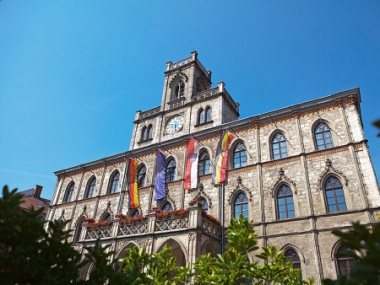The importance for Local Authorities to be active participants in the development of good social inclusion practices
Edited on
12 September 2017Roma-NeT invited Dr Soryia Siddique BSc (Hon), MSc, PhD, an elected Elected member Glasgow City Council, to present at ROMACT/ROMED Conference in Roma Inclusion in Brussels.

Dr Siddique is an active member of Glasgow’s Roma-NeT Local Action Group as well as an Active member of the community in the South side of Glasgow where the majority of Roma live in the city. Here she writes about her role in the Conference and why it was important for Local Authorities.
The European Commission organised a high-level conference in Brussels on 2nd and 3rd October 2014 to present lessons learned in integrating Roma at the local level, one year after the ROMACT programme was launched by the European Commission and the Council of Europe. At this ROMACT/ ROMED Brussels conference on Roma inclusion on the ground, Roma-NeT partners joined and Cities gave presentations.
Mayor Honsell of Udine and I had important messages to convey about the experiences of working with Roma-NeT at local level. We stressed the importance of local authority involvement in Roma inclusion and also the importance of having a wider European perspective which was achieved through partnership working with other local authorities.
I spoke about Glasgow and our Roma inclusion experience, discussed the extensive practices in tackling social and economic exclusion and the examples of success; especially in education; and shared practice with other cities. The conference was an environment where professionals from local authorities shared experiences and learned from each other as well as having the opportunity to be heard by key decision-makers in Brussels.
Mayor Honsell expressed how being part of a transnational learning and exchange project had helped their city to look at the issues in a different way. Though everything with the Roma families in Udine has not been fixed, there was now much more dialogue and issues like school attendance and health issues have been tackled in a positive way. He expressed the need for greater flexibility, especially from EU funds, so the resources can be better targeted at local level.
This event provided a valuable opportunity to meet and to share experiences with representatives from cities in Belgium, Bulgaria, Greece, Hungary, Italy, Portugal, Romania, Slovakia and the Former Yugoslav Republic of Macedonia.
City representatives from Western Europe called for specific assistance to help them integrate marginalised Roma coming from Eastern Europe.
There seemed to be a consensus that access to quality education, in particular pre-school education, and to affordable housing is an urgent priority. There were discussions on how to help create job opportunities in disadvantaged communities by supporting entrepreneurship and around the importance of including social clauses in public procurement.
It was also the place to hear the messages of high-level representatives from the European institutions including Laszlo Andor, Commissioner for Employment, Social Affairs and Inclusion, Soraya Post MEP, Paraskevi Michou, Acting Director-General, DG Justice, Lieve Fransen, Director for Europe 2020: Social Policies in Employment, Social Affairs and Inclusion DG, and Vittoria Alliata, Director for Administrative Capacity Building & South-East Europe in Regional & Urban Policy DG.
Local elected officials emphasised the need to develop local administrative capacity to implement Roma inclusion measures and to better implement EU funding for that purpose. The conference gave an impulse to efforts at all levels to improve the living conditions of disadvantaged Roma across Europe.
Events like this are important, it was an opportunity for myself and other elected officials to share our experience and knowledge and to influence the policies and practices of the future. It became apparent that Cities are key contributors to Roma inclusion, they are the link that can ensure that EU and national policies are applied and to making a difference at local level.
Dr Soryia Siddique BSc (Hon), MSc, PhD, is an elected member Glasgow City Council ; Chair of Children and Families Policy Development Committee; Chair of Glasgow Mela Steering Committee; Chair of Southside Central Partnership and lectures in science based courses.
 Submitted by URBACT on
Submitted by URBACT on




